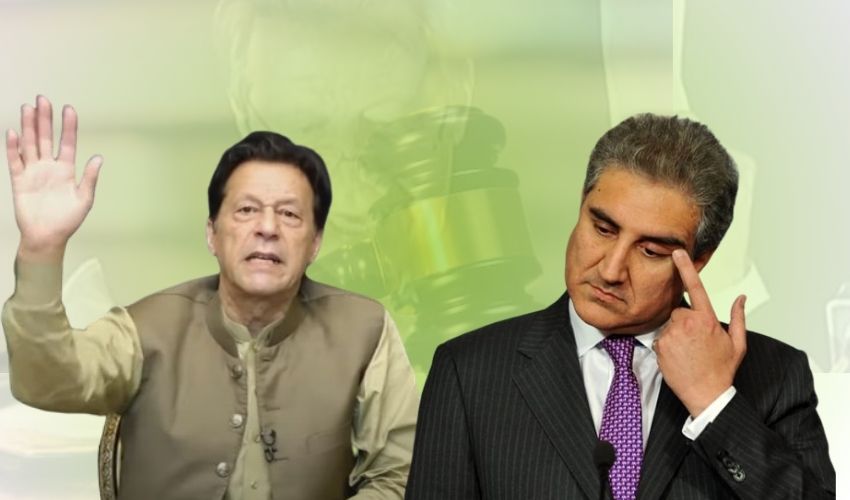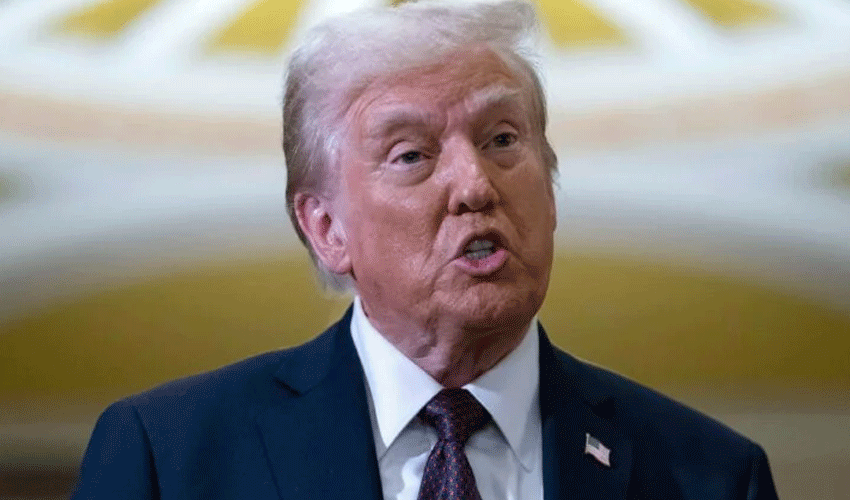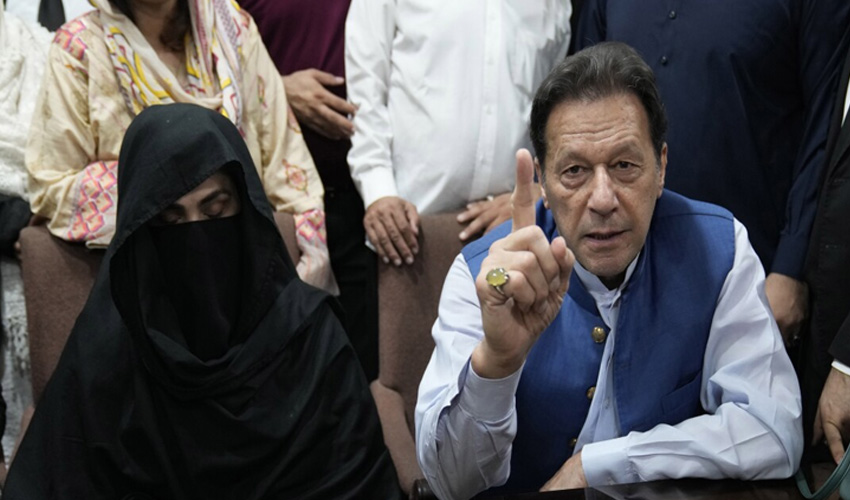Prime Minister Shehbaz Sharif-led federal government moved on Thursday to the Supreme Court to challenge the acquittal of former Prime Minister Imran Khan and former foreign minister Shah Mehmood Qureshi in the high-profile cipher case.
The Ministry of Interior has filed appeals against the Islamabad High Court's (IHC) decision, citing procedural and jurisdictional concerns.
According to the appeals, the High Court overstepped its jurisdiction in hearing the cipher case, asserting that judicial decisions cannot amend laws where Parliament has not explicitly legislated.
The petition emphasised that Imran Khan and Shah Mehmood Qureshi were non-cooperative during the trial, filing 65 different applications and failing to cross-examine witnesses despite legal representation provided at government expense.
The petition argued that the High Court disregarded crucial evidence presented during the trial, necessitating a retrial to meet legal requirements. It urges the Supreme Court to set a hearing date for the appeals challenging the June 3 acquittal by the IHC.
Background of case
The cipher case revolves around a diplomatic document that allegedly went missing from Imran Khan's possession. The Pakistan Tehreek-e-Insaf (PTI) party claims the cipher contained threats from the United States to oust Khan from power. The First Information Report (FIR) filed by the Federal Investigation Agency (FIA) under Section 34 of the Pakistan Penal Code and Sections 5 and 9 of the Official Secrets Act names Shah Mehmood Qureshi and implicates other aides, including Asad Umar.
The FIR stated that on March 7, 2022, the then-foreign Secretary received a diplomatic cipher from Washington. The case alleges that Khan and Qureshi endangered national security by distorting the information for personal gain. It accuses Khan of holding a secret meeting at his Bani Gala residence on March 28, 2022, instructing his Principal Secretary, Muhammad Azam Khan, to alter the cipher's text for his benefit, compromising national security.
The document claims the cipher remains in Khan's possession, compromising Pakistan's encrypted messaging mechanisms and potentially benefiting external powers, thereby harming the state. The FIA's Anti-Terrorism Wing has registered a case against Khan, Qureshi, and others for misuse of official secrets and unauthorized possession of the cipher.
Islamabad High Court's acquittal
On June 3, the IHC acquitted Khan and Qureshi in the cipher case, with Justice Aamir Farooq delivering a brief judgment in their favor. The acquittal was based on appeals against their sentences in the case, which has since become a focal point of legal and political contention.
The government's recent move to challenge this acquittal underscores the ongoing legal battles and political tensions surrounding the cipher case.
The Supreme Court's decision on whether to hear the appeal will be closely watched, potentially having significant implications for the involved parties and the broader political landscape.



























